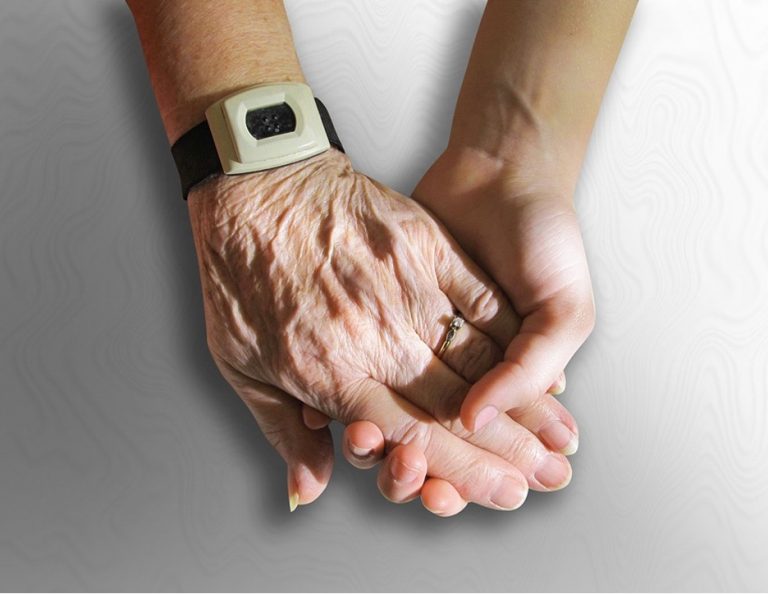Alzheimer’s is the most common cause of dementia and mental deterioration in the elderly. There is no definite cure for this disease, but early detection and medical intervention can significantly slow down the progression of the disease and improve the quality of life of those affected.
Let’s take a look at how Alzheimer’s is diagnosed and managed.

Diagnosis of Alzheimer’s disease
If you are concerned about your memory or have issues with planning and organizing, it is best to visit a doctor. Likewise, if you are worried about someone else, encourage them to schedule an appointment with a doctor and, if possible, offer to accompany them. Having a friend or member of your family around might be quite beneficial in these situations.
A correct, timely diagnosis gives you the best opportunity to make necessary adjustments, plan ahead, and gain access to potentially beneficial therapies and supports.
Seeing a doctor
Alzheimer’s is not the only condition that can result in memory issues; other conditions include:
- depression or anxiety
- stress
- medications
- alcohol or drugs
- other health issues, such as hormonal imbalances or dietary deficits
A doctor can perform a few quick tests to try and determine what the possible cause might be. If necessary, they can then recommend a professional to evaluate you. The doctor will inquire about your worries and any changes you or your family have seen. They’ll also perform a physical examination and look into other elements of your health. To rule out other potential causes of your symptoms, they may also arrange some blood tests and inquire about any medications you are taking.
You will be quizzed and asked to complete memory, thinking, and writing tasks. These tests help the doctor assess the efficiency of various brain regions. This might assist a doctor in determining if you need to be referred to a specialist for additional evaluations.
Referral to a specialist
If the doctor is unsure whether you have Alzheimer’s disease, they may send you to a specialist, such as a neurologist, elderly care physician (sometimes known as a geriatrician), or psychiatrist (an expert in treating conditions that affect the brain and nervous system). The specialist might work in a memory clinic with other experts in diagnosing, treating, and providing guidance to those with dementia and their families.
The personnel at the memory clinic will listen to your worries about your memory or thinking. However, there is no quick and precise test for identifying Alzheimer’s disease. Your memory and other mental abilities will be evaluated, and if additional testing is required to rule out other conditions, it will be scheduled.
Mental status tests
An expert will administer tests known as cognitive assessments to evaluate your mental abilities, such as memory or thinking. Most cognitive evaluations comprise a series of written tests and questions, each of which is graded. These examinations gauge a variety of mental abilities, including:
- the two types of memory- short-term and long-term
- attention span and concentration
- language and communication skills
- time and location awareness (orientation)
- vision-related (visuospatial) abilities
It’s critical to keep in mind that a person’s degree of education may have an impact on test results. For instance, a person with poor reading or writing skills can score lower but not necessarily have Alzheimer’s. Similarly, a person with more education may score higher while having dementia. As a result, these tests can aid in diagnosing the problem, but they should never be used to identify dementia on their own.
Other tests
Your doctor could advise doing a brain scan to rule out other potential causes of your symptoms and search for possible evidence of damage caused by Alzheimer’s. Types of imaging study include:
- CT scan, during which a computer combines the images from multiple slightly different X-rays of your brain.
- MRI scan, during which a strong magnetic field and radio waves are utilized to create precise images of your brain.
After diagnosis
The diagnosis of Alzheimer’s disease may require multiple consultations and tests spread out over several months. For you and your family, adjusting to this period of dementia diagnosis may take some time. While some people find it beneficial to research and make plans for the future, others might take more time to comprehend the news. Discussing the situation with loved ones and close friends may be beneficial. You can also get support from the Alzheimer’s Society.
Since Alzheimer’s disease is a degenerative condition, the weeks and months following a diagnosis are frequently a golden time to consider long-term legal, financial, and medical issues.
Alzheimer’s disease treatment
Alzheimer’s disease currently has no effective treatment. However, there are medications on the market that might temporarily lessen the symptoms. Support is also offered to make daily living easier for those with the illness and their families.
Drugs
A variety of medications may be used to alleviate some symptoms of Alzheimer’s disease temporarily. The primary drugs are:
Acetylcholinesterase (AChE) inhibitors
Acetylcholine, a chemical compound that facilitates nerve cell communication in the brain, is produced in greater quantities as a result of using these medications.
Doctors may prescribe donepezil, galantamine, and rivastigmine for those with early- to mid-stage Alzheimer’s disease. The most recent recommendations advise continuing these medications into the later, more severe phases of the disease. Each of these three AChE inhibitors works equally well, but some people react better to one type than another or experience fewer side effects, including nausea, vomiting, and appetite loss. Usually, negative effects subside after two weeks of medicine use.
Memantine
This drug is not an AChE inhibitor. Memantine functions by obstructing the effects of excessive glutamate, a neurotransmitter found in the brain. Memantine is prescribed for moderate to severe Alzheimer’s disease. It is appropriate for people who cannot tolerate AChE inhibitors. Additionally, it is suitable for those with severe Alzheimer’s disease who are currently on an AChE inhibitor. Headaches, lightheadedness, and constipation are possible side effects; however, they are typically relatively transient.
Always read the patient information leaflet that comes with your medication. Consult your doctor for more details regarding any potential side effects.
Prescription drugs for difficult behavior
Many people with dementia will have behavioral and psychological symptoms of dementia (BPSD) as the disease progresses. These are some examples of BPSD:
- agitation
- aggression
- anxiety
- wandering
- hallucinations and delusions
These behavioral changes can be quite upsetting for both people with Alzheimer’s and their caregivers.
If coping mechanisms are unsuccessful, a psychiatrist may recommend the antipsychotic drugs risperidone or haloperidol for people who exhibit extreme distress or chronic hostility. These are the only drugs approved for use in patients with mild to moderate Alzheimer’s disease who pose a risk to themselves or others. Since risperidone has substantial side effects, it should only be administered temporarily and at the lowest dose possible. Haloperidol is administered only in cases where previous treatments have failed should.
If depression is thought to be the root of anxiety, antidepressants may occasionally be prescribed. Other drugs may occasionally be suggested to address particular BPSDs.
Other therapies and activities used in Alzheimer’s treatment
Medications for the symptoms of Alzheimer’s are only one aspect of therapy for a person with Alzheimer’s. For persons with dementia to live effectively, additional therapies, activities, and support are crucial.
Cognitive stimulation therapy
Participating in group activities and exercises to boost memory and problem-solving abilities is a component of cognitive stimulation treatment (CST).
Cognitive retraining
This method involves working with an occupational therapist to accomplish a personal objective, such as mastering the use of a mobile phone or other commonplace chores. Cognitive rehabilitation utilizes the functioning parts of your brain to support dysfunctional parts.
Working with memories and life stories
Talking about things and experiences from your past is part of reminiscence practice. Typically, props like photos, sentimental items, or music are used to compile a life narrative project. Such a project involves gathering memories from your youth to the present, including photos, notes, and mementos. It could be a digital copy or a real book.
Sometimes, these strategies are used together. There is proof that they can elevate mood and well-being.
Prevention of Alzheimer’s disease
There is still no known cure for Alzheimer’s disease. Thus, there is no surefire way to stop the disorder. However, leading a healthy lifestyle can lower your risk. There are specific measures you can take:
Reducing the risk of developing cardiovascular disease
Cardiovascular disease has been shown to increase the risk of vascular dementia and Alzheimer’s disease. Improving your cardiovascular health may lower your risk of getting these disorders and other significant issues, including heart attacks and strokes. Preventive measures include:
- Giving up smoking and limiting alcohol consumption.
- Consuming a nutritious and balanced diet, with at least five pieces of fruit and vegetables daily.
- Engaging in moderate-intensity aerobic activity (such as cycling or quick walking) for at least 150 minutes a week, or as much as possible.
- Monitoring your blood pressure and controlling it through routine medical exams.
- Making sure you follow your diet and take your medication if you have diabetes.
Dealing with other dementia risk factors
Studies indicate that some other conditions can increase the risk of Alzheimer’s. These include:
- hearing loss
- senior social isolation
- chronic depression
- sedentary lifestyle
You can lower your risk of developing dementia by changing all the risk variables that you can control.
Maintaining a healthy mind and social life.
Evidence shows that people who are mentally and socially active throughout their lives have lower rates of dementia. Your chance of developing Alzheimer’s disease and other forms of dementia may be reduced by:
- reading
- learning new languages
- playing musical instruments
- volunteering in your neighborhood
- participating in team sports, such as bowling
- taking up new hobbies or endeavors
- keeping up a busy social life
Bottom Line
There is still no definite treatment for Alzheimer’s, but early detection and medical intervention can significantly slow down the progression of the disease and improve the quality of life of those affected.
The diagnosis of Alzheimer’s disease can be a lengthy process and often involves specialized tests. Doctors can use various drugs and other therapies and activities to slow the progression of the disease, manage its symptoms, and improve the patient’s quality of life.
Visit our website to learn more about Alzheimer’s and ways of coping with it.




